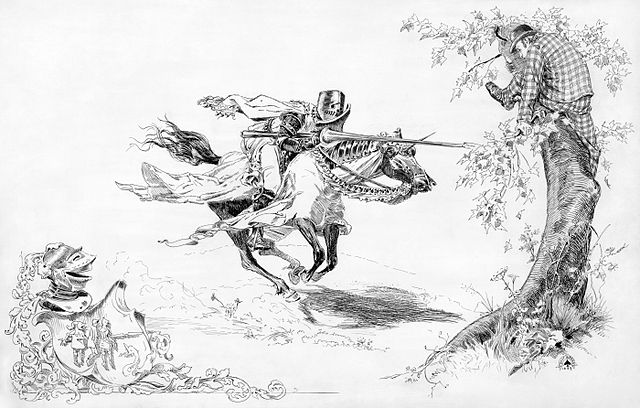My favorite Mark Twain book is a somewhat lesser known one: “A Connecticut Yankee in King Arthur’s Court.” For one thing, it’s very foundational for a lot of time-bending/tech-bending sub-genres of today’s fiction. But I think something else drew me to it.
Twain intended it as a satire of Sir Walter Scott’s romanticized medieval fantasies but I hope and like to think it’s really (indirectly) a metaphor for Reconstruction.
Here’s a quick summary of the plot that illustrates the comparison: A technologically advanced Yankee suddenly arrives in a backwards aristocratic, slave-owning society and tries to impose modernity by schools and by force but — fairly obvious spoiler from a 125-year-old novel — is ultimately thwarted by the forces of regressive, establishment conservatism.
Now, Mark Twain may not have intended the parallel, but it wouldn’t be a stretch to surmise that it was in the back of his mind as he wrote it, a decade after the sudden termination of Reconstruction policies. Plus, he also previously had tried to blame Sir Walter Scott (the clearly intended target of the book) for all of the Deep South planter class’s behavior and attitudes. Twain insisted that Sir Walter’s ahistorical notions of nobility had inspired the southern planters to initiate a pointless war for “honor,” but I think it’s pretty clear they were already several hundred years into their obsession with creating a genteel/monstrously cruel feudal slave state, without any help from novels.
In either case, much of the immediate aftermath of the U.S. Civil War involved New England Yankee officials, troops, schoolteachers, and ministers deploying officially and unofficially into the occupied Deep South to try to establish a slavery-free post-agrarian economy, communitarian values, industry, etc. They faced massive resistance — often violent — from local white residents, as well as sometimes from national leaders who were supposed to have their backs. Ultimately, the Yankees were thwarted in their “civilizing” mission and fled northward as military protection was withdrawn, leaving free blacks to face white mob violence, authoritarian rule, and slavery by another name on their own.
Twain’s novel doesn’t exactly have a happy ending either. The forces of the threatened establishment inevitably raise angry mobs and armies to attack the modernizing protagonist for liberating peasants from the economic system and from their fearmongering religious leaders. And in contrast with other literature of the day, it’s not really a celebration of white savior notions or “the white man’s burden.” The hero finds himself in a place not so entirely different from his own, and he is fully confident that the people aren’t substantially different. He just wants to help them unlock the knowledge and resources they need to lift themselves out of poverty.
It’s a sort of tribute to the futility of trying to enact policies for the greater good to raise standards of living for as many people as possible, even when some of the people being helped the most are also resisting it the most. Twain believed that Sir Walter Scott was pushing something insidious with his chivalrous tales of nobility, in which honorable aristocrats are heroes. The title character of “A Connecticut Yankee in King Arthur’s Court” (note the deliberate identifying characteristic in the title) is an ordinary New England man who suddenly finds himself in a position of power and superior knowledge in Arthurian England — and his first instinct is to help all the ordinary people on as wide a scale as possible, even if they’re afraid of him and resist his efforts. And whether or not he succeeds, trying to reach that goal is true nobility. Which is a very New England attitude to take toward the rest of the United States.



